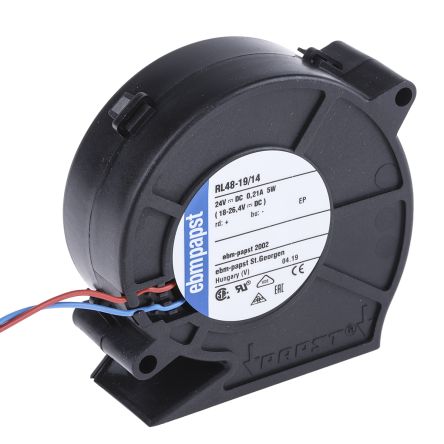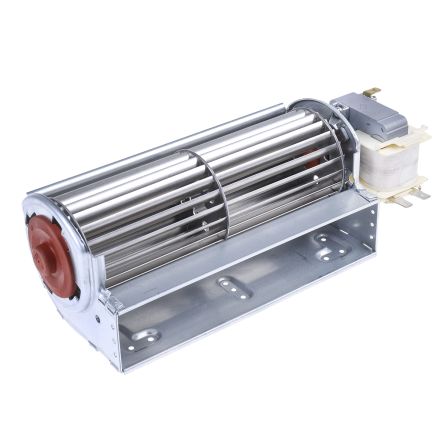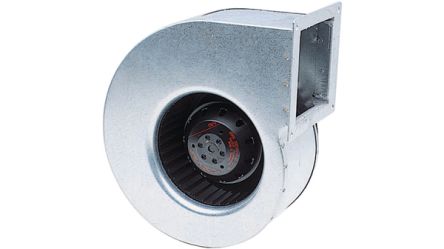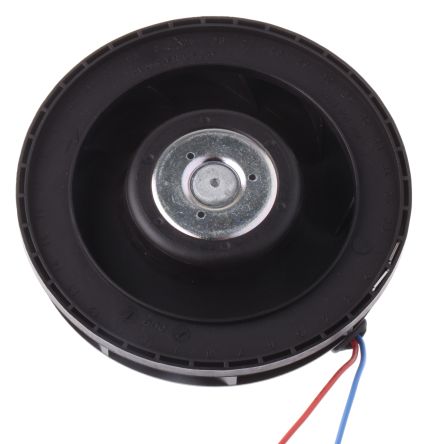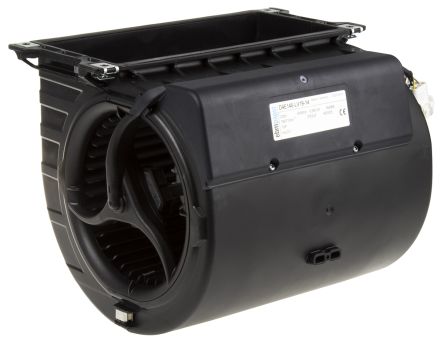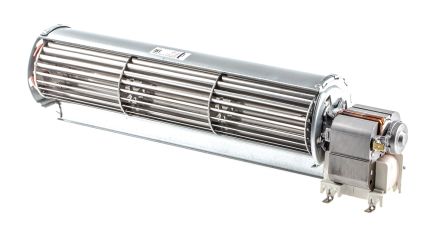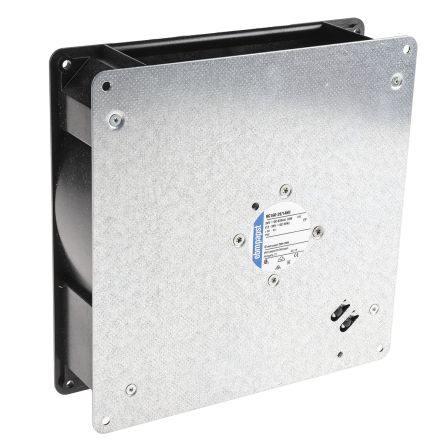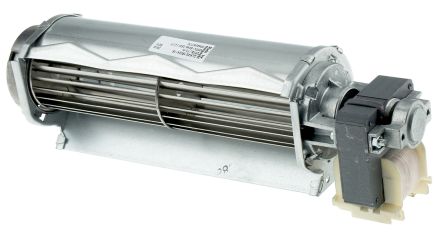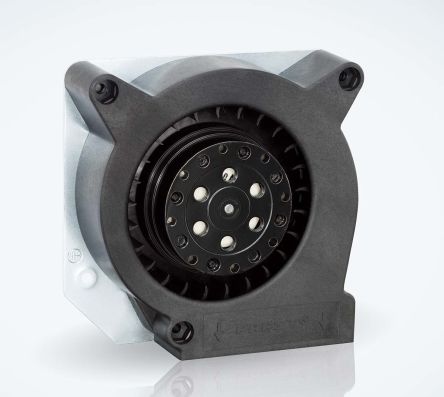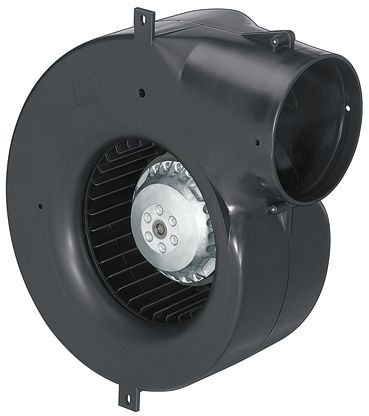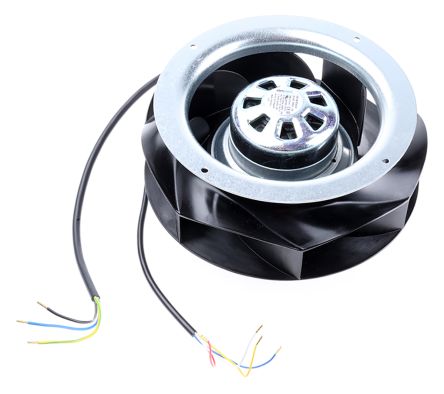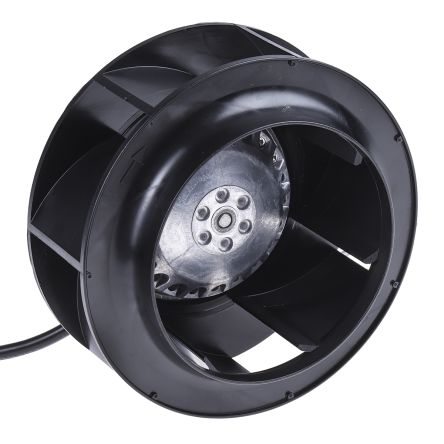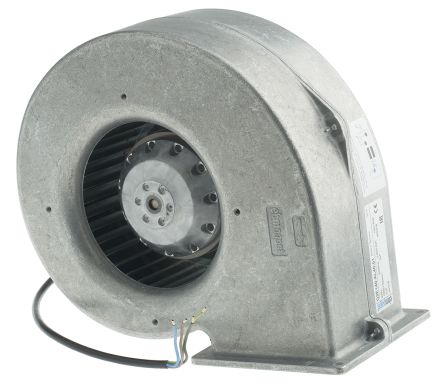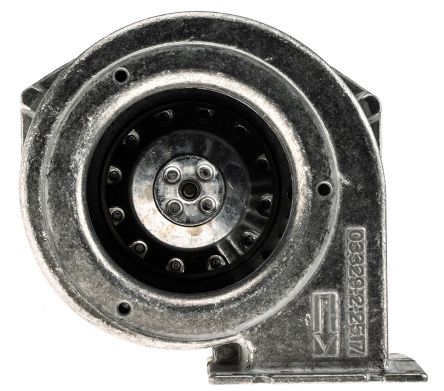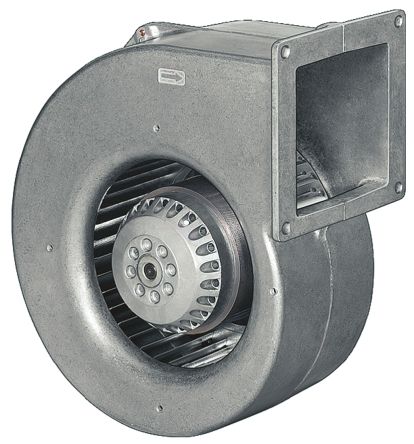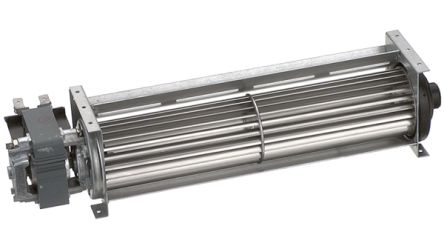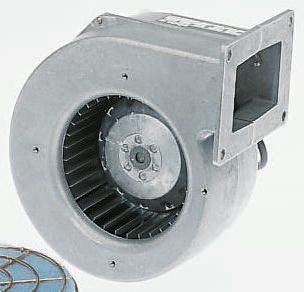- Automation & Control Gear
- Cables & Wires
- Enclosures & Server Racks
- Fuses & Circuit Breakers
- HVAC, Fans & Thermal Management
- Lighting
- Relays & Signal Conditioning
- Switches
- Batteries & Chargers
- Connectors
- Displays & Optoelectronics
- ESD Control, Cleanroom & PCB Prototyping
- Passive Components
- Power Supplies & Transformers
- Raspberry Pi, Arduino, ROCK, STEM Education & Development Tools
- Semiconductors
Centrifugal Fans
Centrifugal fans are also known as blowers and are normally constructed as a fixed drum shape with a number of fan blades (impellers), the impellers rotate and blow air or gas from one place to another. Centrifugal fans are used wherever airflow is needed for aspirating, cooling, ventilating and conveying. Centrifugal fans can be single or multi-stage blowers: Single-stage blowers are ideal when a uniform airflow is required, Multi-stage is more suited when a varying airflow is required at a fixed pressure. You can find out more in our centrifugal fans guide.
Features and Benefits of Centrifugal Fans
Various IP ratings are available, including IP68, if it needs to be placed in a harsh environment. A choice of different fan speeds from 780 rpm to 11500 rpm.
Factors to consider when choosing:
- Pressure requirements
- Flow requirements
- Gas consumption
- Inlet temperature
- Ambient Temperature
- Operating altitude of the blower
Where are blower fans used?
Blowers are widely used in all manner of everyday items, such as:
- HVAC systems
- Dust control
- Pressure Blowers
- Air Conditioners
- Vacuum cleaners
- Air conveyor systems
What is the difference between a centrifugal fan and an axial fan?
Axial fans are used for high flow rates and low pressures with flow rate parallel to the axis of the fan. The blades of these fans are available in different shapes such as aerofoil, sickle paddle, and various pitch. They are commonly used for cooling and ventilation.
Centrifugal fans airflow changes direction twice, once when it enters the fan and secondly when it leaves the fan, These fans have paddle blades forward curved blades, backward curved blades and radial blades. Centrifugal fans move air radially. The airflow created passes through a system of tubes or ducts which creates a higher pressure airflow, making them ideal for high-pressure applications such as cooling and heating systems, dust control, transporting materials and air conveyor systems.
